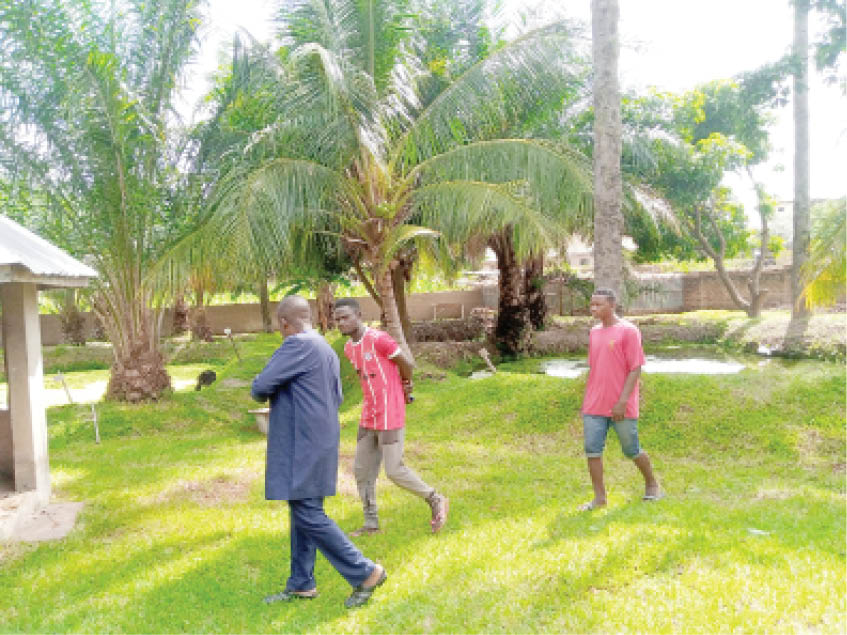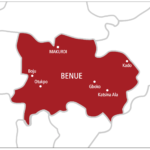For Thomas Unongo, a big fish farmer in Benue State, the business of fishery remains an untapped goldmine in the state, which prides itself as the ‘Food Basket of the Nation.’
This is because farmers practising fish farming in all the 23 local government areas of the state cannot even satisfy the market demand for fish within the state, let alone extending supplies outside the state.
He said fish lovers in the state had to still depend largely on supplies from farmers in Ibadan, Oyo State and Ilorin in Kwara State.
Unongo, who conducted our correspondent round his 12 earth ponds of different sizes of fish in a marshy environment situated in the Adeke area of Makurdi metropolis, urged governments to pay more attention to the sector for the benefits of aqua-culture in the country.
“We cannot meet one quarter of the demand of fish in the state. What we (fish farmers) are doing in the entire Benue State can’t meet one quarter of the demand for Benue markets. Makurdi itself depends on fish from Ibadan.
“The federal government should pay better attention to fisheries in Benue State. Aquaculture needs to be developed. All these other places we hear about, like Niger and Kwara states, don’t have one tenth of the resources we have here (Benue). Our humid climatic environment is wasted. For instance, the Agatu area, down to Apa, Oju, you see swamps everywhere, but nobody utilises them.
“Our water bodies are wasted. If you take this state and give it to Lagos or Oyo you would be fascinated with the outcome. What we lack is financial capability. If you are going into aquaculture, you need money,” he said.
Recalling how he went into a full bloom business with a small capital of N30,000 in 2007 after his initial entrant in 2004, using a two ponds offered to him by a client, the success over the years has been consistent hard work.
He added, “I started on my own – the ATT farm with hired two ponds near Benue Hotel. I spent N30,000, both in construction and stocking of the pond.”
Today, the fish farmer, who also works as a director in the state’s Ministry of Agriculture, disclosed that the content on his fish farm worth between N10 million and N15 million. He wishes to continue to grow his business in the future with little or no loan facility.
Our correspondent observed that the different levels of ponds contained the eggs, fry, fingerlings, juveniles and table-size fishes weighing between 1kilogrammes and 6kilogrammes.
The manager of the farm, Michael Gashia, a graduate of Agriculture from the Joseph Sarwuan Tarka University of Agriculture, Makurdi (JSTUAM), said the fishes when fed well from inception, would at least weigh 1kilogramme in about one month and would be due for consumption.
Gashia added that the table-size fishes at 1kilogramme could be sold for consumption, noting that a lot of care has to be taken at every stage of the fish development in order to get healthy harvest.
On the part of the farm owner, Unongo, the major challenge of fish farming is the feeds, which are costlier to obtain, especially as extra attention has to be paid to quality.
Unongo said he acquired feed from reputable outlets in Makurdi, and sometimes, when it becomes difficult he goes as far as Ilorin, Minna, Ibadan or Badegi to order for supplies of feed for his fish farm.

According to him, “Benue should be home of fisheries in Nigeria. This is because of the natural endowment we have, apart from the presence of two major rivers -Benue and Kastina-Ala.
“There are several tributaries like Okpokwu, Guma, Oju, Buruku, Logo, Vandekiya rivers and small other lettings in all the local government areas.
“We have all these that are natural and can support artistinal fishing; that is fishing in the wild. They can still support the ponds fishery. In ponds, we have the concrete, which is constructed. We also have the earthy pond construction, which is done in a marshy area like this place, where you have no issue of depletion of water. All year round, we have water. The third is collapsible water tank pond.
“People buy tanks, cut them and use for ponding. All types of fish farming are lucrative. Those using tank change water every month. Everything needs to be taken into consideration in fish farming, everything counts from the feeds.”
He explained that to do fish farming, every material must be taken into consideration, just as the source of fingerlings must be good, otherwise they would have very low growth rate.
At the ATT farm, according to the owner, “Initially, we used to hatch here, but because of the task involved, we want to concentrate on production and leave the job out for other people, so we buy from hatchery here in Makurdi.”
He is, however, worried that many graduates from agricultural-based institutions in the state do not want to take to farming, emphasising that they had to be begged to come and make money, yet they won’t come.
Unongo, a graduate of agriculture, urged young unemployed people to take to fish farming because there is profit in the business, while he advised the government to provide loans in kind.
“We need people with passion for the job. We need proper awareness creation for young people to love agriculture and go into it.
“To make a profitable fish farm, young people should be committed to learn. I was committed to learning in my youth service days at Nnewi in Anambara State, where I served an Igbo man and he rewarded me at the end of my service year.
“I can attest to the fact that I have never stolen government’s money. I have worked hard over the years and some of the ponds you see here; I dug them by myself. I come here 6am before going to work, and after work I return to continue working.
“The proceeds from this farm over time have trained two lawyers, built houses for me in different locations of Makurdi. That’s why I keep telling my workers – they are professionals – to be committed to what they are doing,” he stressed.
The fish farmer, who also owns an agro-allied company, described the federal government’s loan scheme to farmers as a huge scam because the facility, in his estimation, is mostly given to urban farmers instead of the real farmers, which, according to him, is a worrisome development,
He strives hard not to obtain a loan, but however, added, “My whole fish farm is owing less than N2 million, which is negligible when compared to its worth. He does not accept the loan interest rate offered to farmers.
Unongo appealed to governments to make things better for farmers, starting from capturing the actual data of practising farmers in the country.
“Let’s get the data of large, medium and small-scale farmers in the country. Also, the government needs good extension workers who will advise farmers on best practices. The government should finance farmers by giving them loans in kind, not cash. For instance, it is necessary to give feeds to fish farmers in the quantity they want,” he said.



